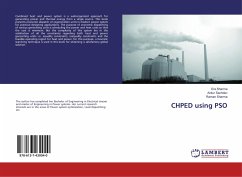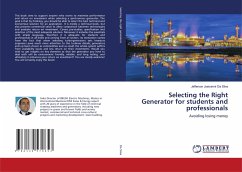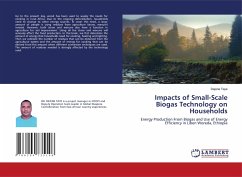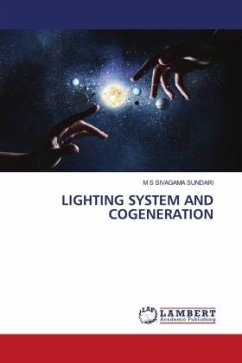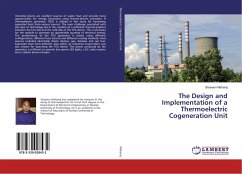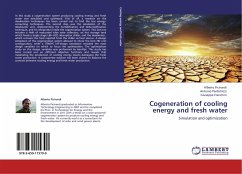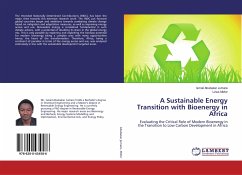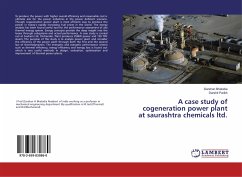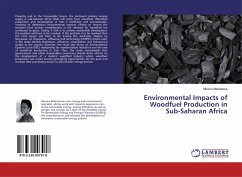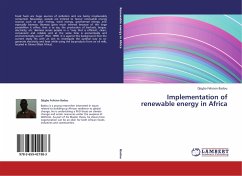
Implementation of renewable energy in Africa
Versandkostenfrei!
Versandfertig in 1-2 Wochen
36,99 €
inkl. MwSt.

PAYBACK Punkte
18 °P sammeln!
Fossil fuels are huge sources of pollution and are being irreplaceably consumed. Nowadays, people are inclined to favour renewable energy sources such as solar energy, wind energy, geothermal energy and especially biomass. Biomass gains much interest because of the large possibilities it offers, that is to say, the production of biofuels, biogas, electricity, etc. Biomass serves people in a "way that is efficient, clean, convenient and reliable and at the same time is economically and environmentally sound" (FAO, 1995). It is against this background that the current study fits with an aim to i...
Fossil fuels are huge sources of pollution and are being irreplaceably consumed. Nowadays, people are inclined to favour renewable energy sources such as solar energy, wind energy, geothermal energy and especially biomass. Biomass gains much interest because of the large possibilities it offers, that is to say, the production of biofuels, biogas, electricity, etc. Biomass serves people in a "way that is efficient, clean, convenient and reliable and at the same time is economically and environmentally sound" (FAO, 1995). It is against this background that the current study fits with an aim to investigate the optimal way to co-generate electricity and heat while using the by-products from an oil mills, located in Ghana (West Africa).



